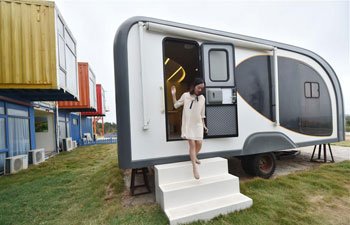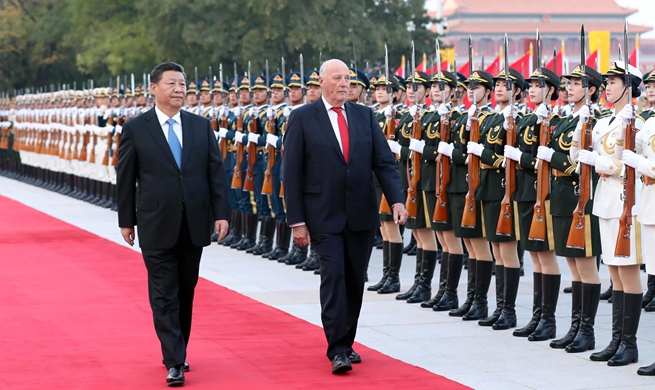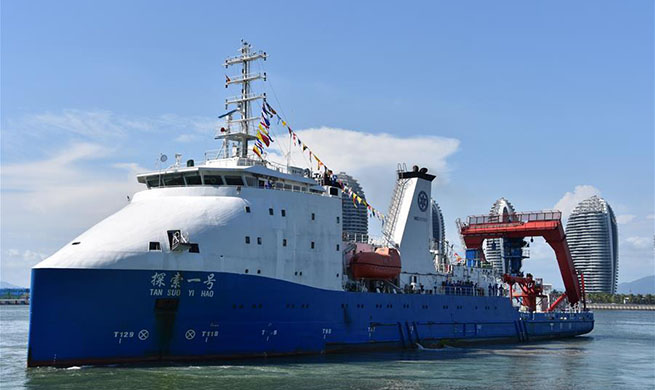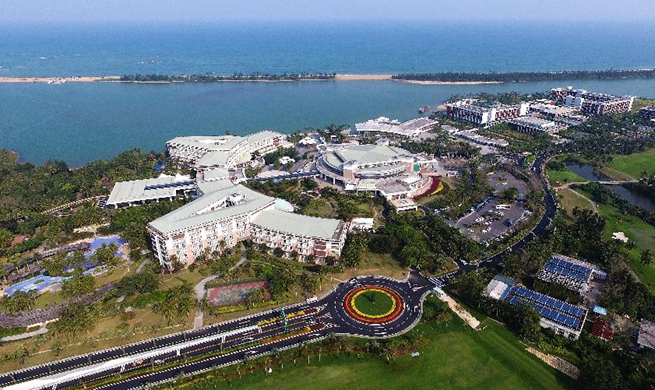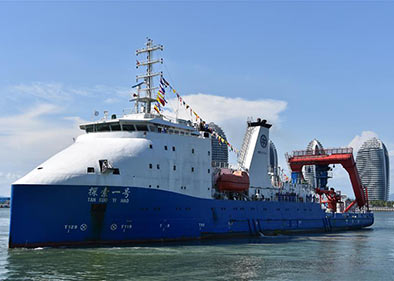SAN FRANCISCO, Oct. 16 (Xinhua) -- Ride-sharing companies that offer on-demand transport services are blamed for increasing congestion in San Francisco, the city's County Transportation Authority (SFCTA) said Tuesday.
In a new report on traffic congestion in San Francisco, the SFCTA said the vehicles of transportation network companies (TNCs) such as Uber and Lyft, the two major ride-hailing firms in the city, are to blame for about half of additional congestion because they increased 51 percent of daily vehicle hours of delay between 2010 and 2016.
The SFCTA said about 55 percent of the average speed decline can be attributed to ride-hailing vehicles during that period.
It estimated about 62 million TNC trips were made in San Francisco in late 2016, comprising about 15 percent of all intra-San Francisco vehicle trips and 9 percent of all intra-San Francisco person trips that fall.
TNC vehicles accounted for about 25 percent of the total delay on San Francisco roadways and about 36 percent of total delay in the downtown core areas such as District 6, which includes the tech firm-heavy South of Market Street neighborhood, in 2016, the SFCTA said.
It added that daily vehicle miles traveled (VMT) on study roadways increased by over 630,000 miles (1.01 million kilometers), and TNCs accounted for 7 percent of this increase in VMT, and for about 5 percent of total VMT on study roadways in 2016.
A lot of TNC trips were often happening in the most congested parts of the city and at the most congested times of day, said Joe Castiglione, the SFCTA's deputy director for technology, data and analysis.
The SFCTA's report was a result of study on traffic congestion between 2010 and 2016 in partnership with the University of Kentucky using a combination of data from on-road monitoring system, real-time GPS data, SFCTA history traffic data, existing statistics from Uber and Lyft, as well as traffic data from INRIX, a global transportation analytics firm.
However, both Uber and Lyft questioned the SFCTA report.
Uber said the report fails to consider critical factors like the spike in tourism or the growth of freight deliveries, "both of which have exploded since the study's baseline date of 2010."
Lyft called the report "flawed and an incomplete picture of the transit challenges San Francisco faces."
"Congestion is a complex issue, and Lyft is committed to being a part of the solution," the company said in a statement.
It pledged to remain committed to creating more efficient, affordable transportation options that take cars off the road, increase the occupancy of cars and reduce transportation barriers.
